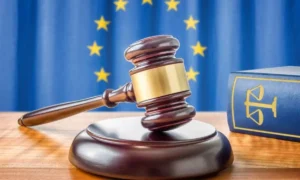Protections Against Frivolous Litigation
In the United States, several important laws protect individuals and companies against baseless civil lawsuits intended to harass or waste time. One of the most common is Rule 11 of the Federal Rules of Civil Procedure.
This rule allows a defendant to request sanctions against the plaintiff or their attorney if the court determines the lawsuit was filed for an improper purpose like harassment or a needless increase in litigation costs.
Some key protections it provides include:
- Requiring plaintiffs and attorneys to certify lawsuits are filed with valid legal and factual justification. Filings submitted in violation can result in penalties.
- They were enabling defendants to swiftly file a motion for dismissal if the complaint lacked substance or legal standing. Courts may choose to sanction the other party for obvious frivolous claims.
- Requiring attorneys to make reasonable factual inquiries to confirm allegations are supported by evidence before proceeding with legal action. Unsubstantiated accusations could lead to discipline.
Sanctions Against the Plaintiff or His Attorney
If a court rules a lawsuit violates Rule 11, it has broad discretion to punish the violating party through sanctions.
Common penalties include:
- Monetary fines paid to the defending party to reimburse legal expenses
- Written or oral reprimands appearing on the violating attorney’s record
- Disciplinary actions through state bar associations like temporary suspensions
- Dismissal of the frivolous claims with prejudice, meaning they cannot be refiled
The goal of sanctions is compensating defendants for baseless litigation costs and deterring future misuse of the legal system through punishment. Courts typically issue written opinions explaining their reasons for sanctioning a party or attorney.
A Court Order for the Other Party to Pay your Attorney’s Fees
In many cases, courts have the option to order the losing party to pay some or all legal fees incurred by the other side. This is known as a fee-shifting provision.
There are a few key instances where fee-shifting is common:
- If a statute expressly allows or requires fee-shifting for certain types of cases. For example, many anti-discrimination and intellectual property lawsuits have these provisions written into law.
- If the plaintiff’s claims were found to be meritless, harassing, or pursued in bad faith justifying reimbursement. This can result from Rule 11 sanctions or other related doctrines.
- If a contract between the parties contains a prevailing party clause agreeing the winner may recover attorney costs. Courts will generally enforce these.
Professional Discipline Against an Attorney Who Files a Frivolous Lawsuit
If an attorney is found culpable in willful misuse of the courts through baseless litigation, they potentially face disciplinary action through their state bar association.
Common disciplinary actions include:
- Public or private reprimands on the attorney’s official record
- Short-term (less than 6 months) suspensions of their legal license
- Longer suspension periods of 6 months to 2 years
- Permanent disbarment or revocation of their law license in extreme repeat cases
Disciplinary boards investigate complaints regarding attorney misconduct like filing frivolous suits and sanction counselors as they deem appropriate. This can seriously damage careers and serve as a deterrent against abusive legal practices that harm the profession’s reputation.
Criminal Prosecution For Perjury
In rare cases, plaintiffs or witnesses caught intentionally providing false testimony under oath during civil proceedings may face criminal perjury charges. This is considered a felony under federal law and many state statutes.
Some key aspects of perjury regarding civil lawsuits include:
- Prosecutors must prove testimonial statements were demonstrably false, not just mistaken. Negligence is usually not enough for charges.
- The false declarations need to have been material, or important, to resolving core factual matters in the case. Immaterial lies don’t count.
- The person giving false testimony must have known their statements were untrue at the time they were made under oath. Honest mistakes won’t lead to charges.
Penalties upon conviction of perjury involving a civil suit can include hefty fines and prison time like 1-5 years. Prosecutors take such cases seriously to maintain the integrity of court proceedings.
Civil Lawsuits For Abuse of Process or Malicious Prosecution
As a final deterrent against clearly frivolous civil claims, defendants may pursue new state court tort actions against those responsible for abusive suits.
Two common types are:
- Abuse of process: When legal proceedings were initiated with an illegitimate ulterior motive beyond resolving the basic issues argued in court, such as coercing settlement.
- Malicious prosecution: Bringing a lawsuit without probable cause and resolving in favor of the defendant that caused them harm/damages to defend.
If successful, these tort claims can result in compensatory or even punitive damages imposed through a civil judgment which critics argue provides the most teeth against frivolous litigation. However, the standards to prove are high, and such counter-suits are infrequent.
Frequently Asked Questions
A civil lawsuit refers to legal proceedings between two private individuals, corporations, or other non-governmental entities in a court of law that involves disputes over private legal rights and compensation for civil wrongs known as torts.
The best initial protections are thorough record keeping, careful operational policies/procedures, oversight/auditing practices, and liability insurance.
Oklahoma follows the common law tort of abuse of process, which establishes civil liability for deliberate misuse or perversion of properly initiated legal procedures to obtain an outcome they were not legally intended for.










